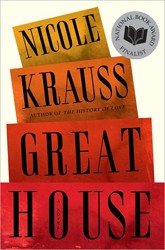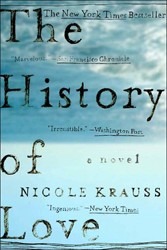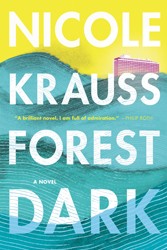As anyone who has been entranced by her acclaimed novels knows, Nicole Krauss has an uncanny ability to illuminate the power of history and memory, especially as it shapes the fateful choices people make in their most vulnerable moments. The stories in her debut short story collection, To Be a Man, expose the tensions and betrayals between men and women, and between generations, with similar deftness. Most of these immersive and slow-burning stories achieve a novelistic depth and range that will leave readers fully satiated, if often unsettled.
Some of the ten stories in To Be a Man date back to the early aughts and appeared in prestigious venues such as The New Yorker; two were selected for the prestigious Best American Short Stories series. Others are quite recent, and several standouts have never before appeared in print. Krauss’s protagonists tend to be keenly intelligent, although sometimes maddeningly oblivious to their own secret desires and ambitions; they are often caught on the precipice or the aftermath of startling realizations and transformations. While many of the stories focus on contemporary Jewish identities, some, like “In the Garden,” immerse us in less familiar worlds. Here, the protégé to “Latin America’s greatest landscape architect” witnesses the fate of a large public garden under a totalitarian regime. As an allegory of the grotesqueries of twentieth-century human civilization, it’s a quietly chilling masterpiece. While many of the provisional lives we encounter in these stories are described in rich detail, others are captured in a single brief devastating sentence: “We were European Jews, even in America, which is to say that catastrophic things had happened, and might happen again.” A significant number touch on the painful complexities of father-daughter relationships. In one of these, a daughter dreams of her deceased father as a bitterly disappointed toddler only to wake in his old apartment and discover that she has inherited a stranger who she must somehow accommodate.
Others are multigenerational, like the witty and moving “Zusya on the Roof,” a wise retelling of a parable in Martin Buber’s Tales of the Hasidim, which features a profoundly stirring encounter between a convalescent grandfather and a newborn on a rooftop. At one point or another, many of Krauss’s characters endure various permutations of the condition described by the narrator of “Future Emergencies”: “the slight, sickening feeling of being reminded of the reckless authority of time” or of “losing your bearings in a world whose dimensions you thought you’d learned to live with.” Others are itinerant characters (sometimes due to privilege, sometimes due to harsh necessity) “whose roots are sown in two places and so can never grow deeply enough in either.” Krauss’s unabashed passion for cinema sometimes filters into the imaginations of her protagonists, leading to ironic or startling epiphanies. This occurs most unforgettably in “Seeing Ershadi” which traverses Tel Aviv, Iran, and Japan, unraveling a young dancer’s fierce and poetic obsession with the actor Homayoun Ershadi. A few stories are disquietingly pre- or postapocalyptic, such as one in which a society anxiously faces a mysterious contagion, or the unforgettable “End Days” which contrasts the story of a marital breakup with excavations at Megiddo (the prophesied site of Armageddon). “End Days” feels almost uncannily prescient, with its unsettling fires and juxtapositions of the present with Iron Age cataclysms. It also presents the most devastating portrayal of the Jewish divorce ceremony of the get, in all its brutal intimacy, that you’ll likely ever read.
The titular and final story proves the most daring and disquieting of the entire collection — a surprisingly raw examination of the inherent violence of both German and Israeli masculinities. It also encompasses some of the author’s most enduring interests: the power of memory, divided selves, monogamy and adultery, belated self-discoveries and transformative encounters. Like everything else in this exquisite collection, all of itse elements cohere beautifully. In To Be a Man, Krauss’s short fiction proves as elegantly crafted as her novels, brimming with penetrating understanding of the complex dynamics of modern families, and characters whose struggles with difficult truths ultimately challenge and enrich the reader’s own world.
Ranen Omer-Sherman is the JHFE Endowed Chair in Judaic Studies at the University of Louisville and editor of the forthcoming book Amos Oz: The Legacy of a Writer in Israel and Beyond.






